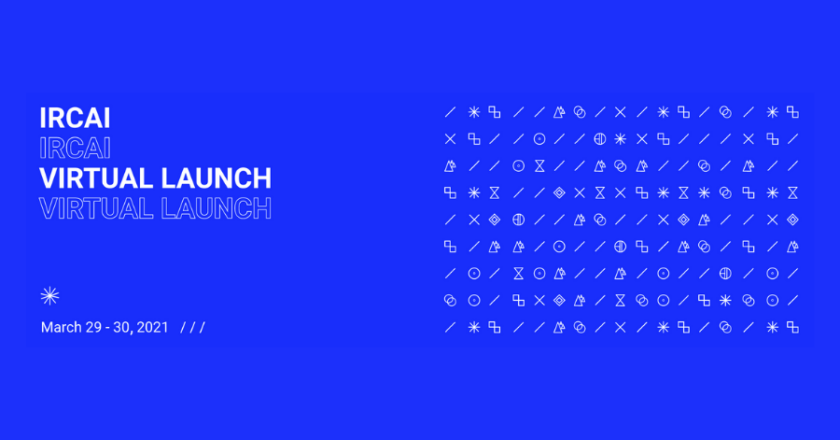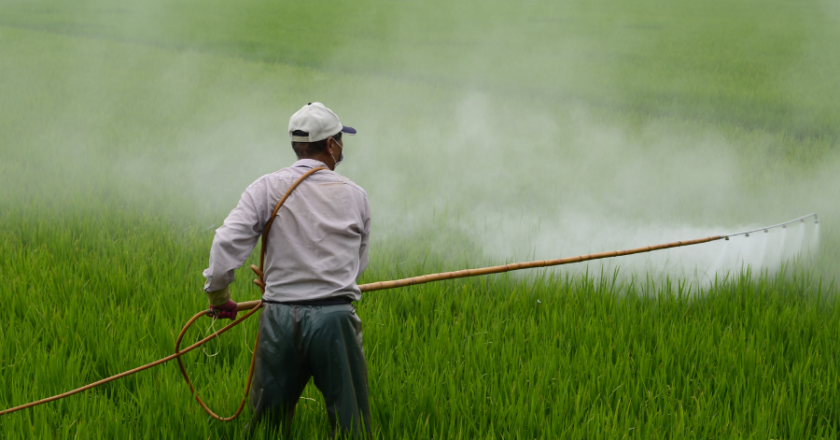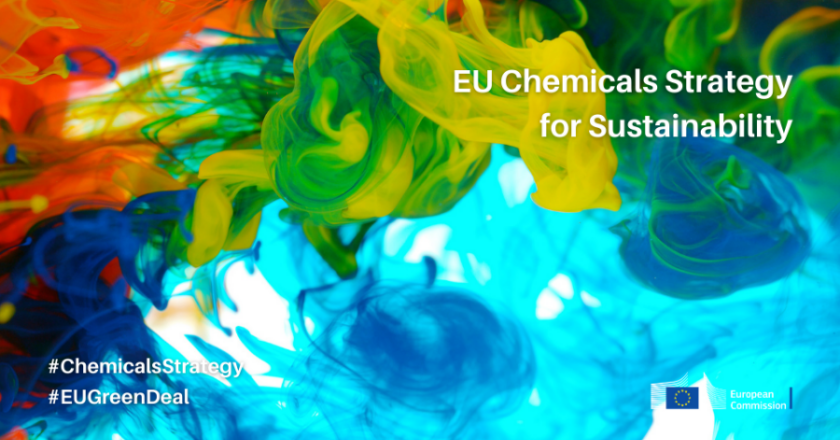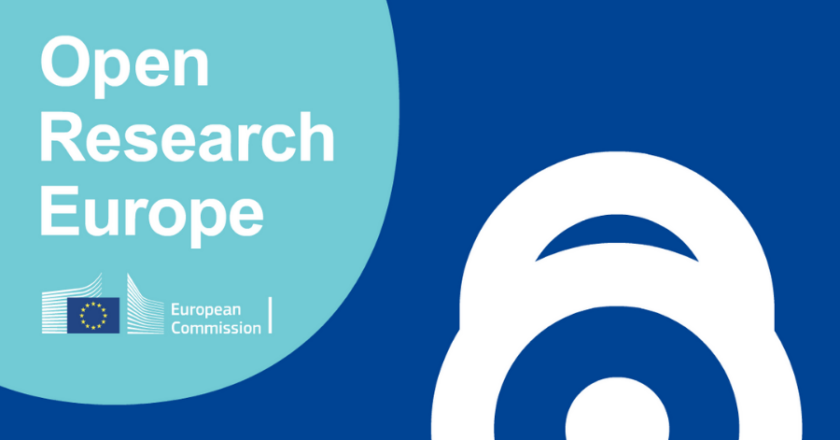Online
13 – 21 August 2021
Website: https://bit.ly/3sc5AR4
ERC: Celebrating 10,000 grantees
Online
6 May 2021, from 10:00 to 11:00 CEST
Website: https://bit.ly/32aPYTj
Helsinki Chemical Forum
Organised by the European Chemical Industry Council (CEFIC)
Online
27 to 28 April 2021
Website: https://bit.ly/3uMWLi6
Call for tenders for framework contractors for EMA-funded-studies
The European Medicines Agency (EMA) opened a Call for tenders for framework contractors for EMA-funded-studies.
The purpose of the Call is to purchase the services of research organisations to perform pre- and post- authorisation quality, efficacy and safety research to generate data and information to support regulatory decision-making for human and veterinary medicinal products.
- Lot 1: Pre-clinical research
- Lot 2: Veterinary studies
- Lot 3: Statistical research
- Lot 4: Qualitative research
- Lot 5: Pharmacoepidemiological research
- Lot 6: Quality of medicines
Deadline: 30 April 2021
Website: https://bit.ly/3gaZspJ
EU Knowledge Valorisation Week
Online
27 to 30 April 2021
Website: https://bit.ly/3e2ZRrD
7th Slag Valorisation Symposium
The International Slag Valorisation Symposium
Organised by EIT Raw Materials
Online
27 April 2021 (08:00 CEST) to 29 April 2021 (17:00 CEST)
Website: https://bit.ly/31gSpmJ
Eurovariety 2021
9th European Variety in University Chemistry Education Conference
7 – 9 July 2021
Hybrid: Ljubljana, Slovenia & online
Website: https://bit.ly/3qshEgB
7th Portuguese Young Chemists Meeting – 7PYCheM
7PYCheM
19 to 21 May
Online
Website: https://bit.ly/2PmLYfg
Call of Interest for CHESAR and EUSES combination
The European Chemical Agency (ECHA) has opened the call for the ECHA stakeholders on the combination of the CHESAR and EUSES platforms. ECHA initiated a survey to collect information.
More details about the survey: https://bit.ly/3aaIcNA
Cutting-Edge Homogeneous Catalysis – CEHC-1
The conference is organised in a hybrid mode, the physical venue being in Toulouse, France, and online participation being made available through the Zoom Webinar platform.
4 to 6 May 2021
Online
Website: https://bit.ly/3cmHbUi
The Carbon element – Key towards a sustainable society
‘The Carbon element – Key towards a sustainable society’ webinar
Thursday 22 April 2021, 10:00 to 16:30 CEST
Online
Website: https://www.euchems.eu/carbon-element-webinar/
The scope of this webinar is to focus on the scientific and technological challenges of decarbonization and to discuss some key issues such as the carbon cycle, fossil fuel reserves and the perspectives of carbon sequestration and utilization in the energy and chemical sector. The workshop aims to discuss whether carbon could be depicted as an endangered or conflict element in the next edition of the EuChemS Periodic Table. The online webinar will also provide an opportunity to discuss the EuChemS Periodic Table.
Register here.
Sustainable Chemistry Lecture Series – SCLS
4th edition of the Sustainable Chemistry Lecture Series – SCLS
Wednesday 21 April 2021
Online
Website: https://bit.ly/3scY34v
Call for continuous collection of chemical contaminants occurrence data in food and feed
The European Food Safety Agency (EFSA) has received from the European Commission a mandate to collect all data available on the occurrence of chemical contaminants in food and feed. Stakeholders are invited to participate in this study.
The list of contaminants (with their specific deadlines for each one) is available here.
Deadline: depending on the elements targeted, between 31 May and 1 October 2021.

What’s new on GDPR?
The Federation of European Academies of Science (FEAM) has recently released its “International Sharing of Personal Health Data for Research” report.
Part of the statements draw on discussions from the ISC’s GDPR Webinar that was hosted back in 2019 and which second session is to take place in September 2021.
The report outlines various key points as regards to the GDPR in open science and open research such as the crucial need for international collaboration “for example in large-scale epidemiology and registry data [to work] with a high number of variables from different countries” (p. 24 of the “International Sharing of Personal Health Data for Research” report); while learning how to process the wide data diversity. FEAM also underlines the importance of adequate use, appropriate safeguards, explicit consent and above all prioritising social interest.
The report closes with some recommendations for improvement such as closer collaboration with academies and the need to take patients opinions into account.
Read and download the complete FEAM report here.
EIT Raw Materials Call for projects 2022
The Call for Projects 2022 of the EIT Raw Materials is now open.
Partners of the EIT Raw Materials are encouraged to submit new project proposals that will generate a significant impact on European industrial competitiveness, innovation capacity and human capital, as well as empower students and entrepreneurs driving towards the circular economy and the contribution towards the European Union Green Deal goals.
Deadline: 1 September 2021 (13:00 CEST)
Website: https://bit.ly/39bCeve
EIC Accelerator calls
As the European Commission has recently launched the new European Innovation Council, the first EIC Accelerator calls, which overall budget amounts to €1 billion, have officially opened on 9 April. Almost half of the attributed budget (€495 million) will be targeted at digital and health technologies as well as Green Deal related activities. The other half will be dedicated to innovation in all fields.
EIC Pathfinder research and innovation grants programme was opened on the same day with a total budget of €168 million.
Find out more about EIC calls here.

UNESCO’s new International Research Centre on AI
On 30 and 31 March 2021, the UNESCO’s International Research Centre on Artificial Intelligence (IRCAI) was inaugurated online by the Republic of Slovenia’s President, Borut Pahor, and the UNESCO’s Director General, Audrey Azoulay. This Center is under the auspices of UNESCO at Jožef Stefan Institute (JSI), Ljubljana, Slovenia. IRCAI’s objectives are to provide a coordination point, funding route and exploitation accelerator for approaches to the United Nations Sustainable Development Goals (SDGs) that make use of AI.
Opening speeches introduced the audience to the IRCAI project and the many contributions from Slovenia in the field of Artificial Intelligence (AI) in recent years; for which it was selected. Emphasis was put on transparency, gender balance and how a more ethical AI would help reach the United Nations’ 17 SDGs by 2030. Discussions also focused on the need for a more efficient open education system on AI.
There are currently 10 initial projects that are being developed and are to be launched in 2021.
You can find more information about it on the IRCAI website and watch the launch event here.

New Transparency Rules for EFSA’s Risk Assessment
As of 27 March 2021, the new Transparency Regulation (EU) 2019/1381, passed by the European Parliament and the Council of the European Union, will be put into application. This regulation will foster the ability of the European Food Safety Authority (EFSA) to carry out its risk assessments while complying with the highest transparency standards. It also aims to increase the independence of studies, to strengthen governance and scientific cooperation and to develop a comprehensive risk communication.
An online celebratory event for the entry into application of the Transparency Regulation took place on 31 March 2021.
“This is a pivotal moment for the assessment of risks in the food chain in the EU. EFSA is grateful to the European Parliament, to the European Commission and to the EU Member States for giving us this opportunity to bring citizens and stakeholders closer to our work and to benefit from greater scrutiny of our working processes and practices.”
– Bernhard Url, EFSA’s Executive Director
Source: EFSA’s news release
You can read more about it on the European Commission website.
A Q&A document that summarises the new legislation has been made available online by EFSA.
More information about the new Transparency Rules for EFSA’s Risk Assessment is available on the EFSA website.
ERC Grants
ERC Consolidator Grants
The call for the ERC Consolidator Grants is currently open.
ERC Consolidator Grants are designed to support scientists wishing to consolidate their own independent research team or programme in Europe. The ERC Consolidator Grants opened for researchers of any nationality with 7-12 years of experience since completion of PhD. Applications can be made in any field of research.
Deadline: 20 April 2021
Click here for more information about it.
ERC released a tentative calendar for its 2022 Open Calls
The European Research Council (ERC) released a calendar for the 2021-2022 ERC calls with tentative dates. Due to the start of Horizon Europe, the EU new Framework Programme, the calendar for the upcoming and future ERC calls differs from the previous years.
You can read more about it here.

ENVI Committee meets on the EU pesticides ban export
In March 2021, the Committee on the Environment, Public Health and Food Safety (ENVI Committee) gathered to discuss several pressing issues, including a ban on pesticides export.
On 23 March 2021, the DG SANTE, discussed during the ENVI committee meeting the regulation on EU pesticides ban export. Currently, pesticides banned in the EU can be found in products that the EU imports from third countries, where pesticides regulation is different. As a result, banned pesticides in the EU circulate within the 27 member states. Although 72 countries signed the Rotterdam’s Convention, which is a global agreement on pesticides and chemicals regulation, the EU law in this regard is more restrictive according to Jürgen Hellbig, senior Expert on Chemicals advising the DG ENV.
MEPs pointed out the “tolerance 0” on pesticides within this regulation: third countries do not insure the same level of food safety as in the EU. In addition, trade agreements, such as the Mercosur, also do not guarantee the same risk assessment level between the EU 27 states and other countries.
Emphasis was also given to banned chemicals produced inside the EU that are being used by third countries. In November 2020, 70 NGOs urged in an Open Letter to the Executive Vice-President of the European Commission, Frans Timmermans, to prohibit the export of banned pesticides and the import of food with these same banned pesticides.
The recording of the full session is available here.

The Council of the European Union endorses EU Chemicals Strategy for Sustainability
On 15 March 2021, the Council of the European Union approved the conclusions on the EU Chemicals Strategy for Sustainability, adopted by the European Commission in October 2020 (read more about it in the previous issue of the EuChemS’ Brussels News Updates (BNU)).
This strategy is part of the European Union’s toxic free environment by 2050, as announced in the European Green Deal. This new strategy for chemicals sets the long-term vision for the EU chemicals policy and aims to ban the most harmful chemicals in consumer products and to phase-out hazardous chemicals that affect vulnerable groups.
In its conclusions, the Council supports the European Commission in implementing the actions laid down in the Chemicals Strategy for Sustainability. The Council emphasised the necessity to limit exposure to endocrine disruptors and to reduce the harmful effects of chemical mixtures.
Read more about the EU Chemicals Strategy for Sustainability in the press release of the Council of the European Union.
European Food Safety Authority (EFSA) public consultations
A number of consultations put forward by the European Food Safety Authority (EFSA) are currently open.
- Public consultation on the draft EFSA Strategy 2027
Deadline: 2 May 2021 – 23:59 (CEST) - Public consultation on the draft scientific guidance for the submission of dossiers on food enzyme
Deadline: 9 May 2021 – 23:59 (CEST) - Public consultation on a draft updated Guidance on the assessment of exposure of operators, workers, residents and bystanders in risk assessment for plant protection products
Deadline: 9 May 2021 – 23:59 (CEST)
You can take a look at all here.
EuChemS is an official accredited stakeholder of the European Food Safety Authority (EFSA).

The European Commission launched the Open Research Europe publishing platform for scientific papers
On 24 March 2021, the European Commission launched the Open Research Europe publishing platform. In its press release, the European Commission presents this platform as a tool to support open science and transparency in the scientific publishing process within the EU. Open Research Europe will also enable rigorous open peer review and fast publication.
Furthermore, Open Research Europe is free-of-charge, making the platform accessible for everyone.
As indicated in the Infographic Open Research Europe, the publication process follows these steps:
- Prepublications checks
- Swift publication as preprint
- Author led-open peer review
- Publication as peer-reviewed version
- Indexing and preservation
Researchers from all scientific, humanities and social sciences fields, stemming from Horizon 2020 funding, can submit their articles on Open Research Europe at no cost to them. One author of each publication must have been, or still is, a recipient of a Horizon 2020 or Horizon Europe grant.
EuChemS had its representative within the High Level expert group of the Open Science Policy Platform (OSPP), which advised the European Commission on how to further develop and practically implement open science policies.
Our 🆕 #OpenResearchEurope platform enables #HorizonEU beneficiaries to publish their latest #scientific discoveries & provides free access to everyone.
Learn more here 👉 https://t.co/u9ZsPAAxoa
Have a look at #MSCA publications uploaded so far
📄 https://t.co/m9qCkjFNob pic.twitter.com/Qd080rCcsn— Mariya Gabriel (@GabrielMariya) April 9, 2021
European Chemicals Agency (ECHA) public consultations
A number of consultations put forward by the European Chemicals Agency (ECHA) are currently open:
- Consultation on eight proposals to identify new substances of very high concern – comment by 23 April 2021.
- Consultation on the restriction proposal of lead in outdoor shooting and fishing – comment by 24 September 2021.
You can take a look at them here.
EuChemS is an official accredited stakeholder of the European Chemicals Agency (ECHA).
European Commission Public Consultations and Roadmaps
A number of consultations and roadmaps put forward by the European Commission are currently open:
- Public consultation on Healthy Soils – new EU soil strategy
Deadline: 27 April 2021 - Public consultation on Climate change – new rules to prevent methane leakage in the energy sector
Deadline: 1 May 2021 - Public consultation on Sustainable products initiatives
Deadline: 9 June 2021 - Public consultation on Gas networks – revision of EU rules on market access
Deadline: 18 June

